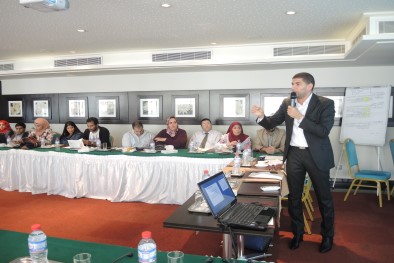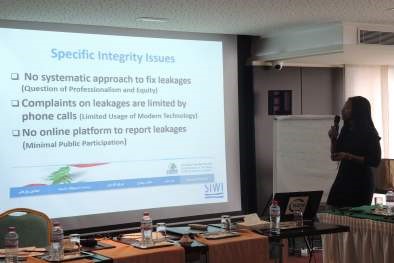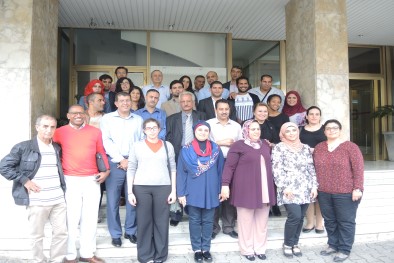Based on the findings of rapid national integrity risk assessments conducted in 2014, specific capacity building needs were identified and a set of national trainings were designed and conducted during 2015. A total of 20 training workshops, 4 per country, were conducted targeting 5 different stakeholder groups[2]. These trainings will conclude with a set of high level workshops in each of the focus countries in order to increase dialogue and advocacy on how corruption can be addressed in water management drawing on national and local experiences for new and appropriate approaches.

In this framework, the first three such high level workshops took place in Jordan (Dead Sea, 14-15 December 2015), Lebanon (Beirut, 18 December 2015), and Tunisia (Tunis, 28 January 2016) bringing together targeted decision makers who have an integral role in water governance and integrity in the respective countries. These events served as dialogue platforms to address the water integrity challenges highlighted in the national assessment reports, and the suggested policy recommendations. Moreover, the workshops offered the opportunity to showcase the outcomes of the capacity building trainings, through the presentation and discussion of some of the developed action plans by participants from the different training groups. Importantly, these events provided the chance for brainstorming and exchanges on concrete ways to promote integrity at policy level and towards sustainable water resources management. Among others, the suggestion to present the core findings of the project and the recommendation to the Council of Ministers and the water-related Parliamentary Committees of the countries is expected to have significant value for mainstreaming water integrity in policy and decision making.

Furthermore, to support more long term water integrity processes at regional level, four regional Alumuni workshops will target selected participants to the national trainings, each one for a different stakeholder group. The first regional workshop targeting participants from civil society groups was held in Tunisia (Tunis 2 to 5 November 2015). The workshop offered a forum for the 25 participants from the 5 focus countries to share experiences on how integrity, transparency, accountability and corruption can be addressed in water resource management and what new approaches they are implementing in that purpose at basin, local and country-level. Moreover, the Alumni workshops led to the creation of regional community of practice on water integrity and to fostering water integrity ambassadors in the target countries.
The second regional alumni workshop, targeting operational/mid level staff will take place in Jordan, Dead Sea, on 8-11 Feb 2016.
